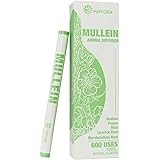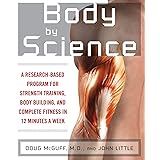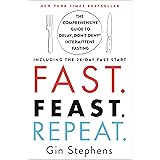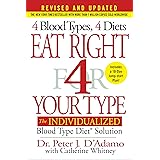A Holistic Weight Loss Diet Plan: Nourishing Your Body from Morning to Night
Are you striving for effective weight loss but find yourself grappling with where to begin or how to maintain a healthy eating routine? Achieving your weight loss goals can often feel like an uphill battle, especially when navigating the complexities of daily meal planning. However, as Smt. Hansa Ji explains in the accompanying video, a structured yet simple approach to your diet, focusing on balanced meals from breakfast to dinner, can significantly simplify this journey. This comprehensive guide, building upon the valuable insights shared in the video, delves deeper into creating a sustainable and satisfying weight loss diet plan that supports your body’s needs throughout the day.
The essence of successful weight management lies not in drastic restrictions but in mindful choices and consistent habits. A well-designed diet plan is known to empower individuals, leading to improved energy levels, better digestive health, and ultimately, effective weight reduction. This article offers an expanded perspective on the principles discussed, incorporating a blend of traditional wisdom and contemporary nutritional understanding to help you foster a healthier lifestyle.
Kickstarting Your Metabolism: The Morning Ritual for Weight Loss
The way your day is started can significantly influence metabolic activity and overall calorie expenditure. A strategic morning ritual is therefore often recommended as a foundational element of any effective weight loss diet plan. Smt. Hansa Ji suggests an excellent starting point: incorporating apple cider vinegar into your morning routine. Approximately 5 to 10 ML of apple cider vinegar, when mixed with a glass of lukewarm water and consumed on an empty stomach, is believed to contribute positively to fat burning processes.
Studies have indicated that acetic acid, the primary compound in apple cider vinegar, can play a role in blood sugar regulation, which in turn may reduce insulin spikes. Lower insulin levels are often associated with enhanced fat metabolism, suggesting a direct benefit for those aiming for a healthy weight loss. Furthermore, this simple concoction is often credited with promoting a feeling of fullness, which can help in moderating calorie intake throughout the morning. By establishing this simple, yet potent, morning habit, your body is prepared for a day of efficient energy use and digestive wellness.
The Power of Protein-Rich Breakfast for Sustainable Weight Loss
Many individuals might be tempted to skip breakfast to save calories, but this approach is frequently counterproductive for long-term weight management. The importance of breakfast, particularly one rich in protein, cannot be overstated when a healthy weight loss diet plan is being implemented. Eating a protein-rich breakfast is known to significantly reduce appetite and hunger, helping you feel fuller for longer periods, thus leading to the consumption of fewer calories throughout the day. This strategic approach effectively diminishes the likelihood of reaching for sugary foods later on, which are often detrimental to weight loss efforts.
Protein is recognized for its high satiety factor and its role in boosting metabolism through the thermic effect of food (TEF). This means more energy is expended by the body to digest and metabolize protein compared to carbohydrates or fats. While the video highlights three satisfying Indian breakfast meals—fenugreek moong daal paratha with curd, barnyard millet or Dalia or oats upma with green peas, and beetroot poha with 60 gram boiled moong and green peas or peanuts and cashews—it’s worth noting that other protein sources like eggs, Greek yogurt, or lean meats can also be incorporated. Ensuring your first meal is packed with protein is a critical step towards sustained energy and controlled hunger, acting as a cornerstone of your weight loss diet plan.
Crafting a Balanced Lunch: Fueling Your Afternoon for Optimal Weight Loss
As the day progresses, maintaining energy and focus becomes paramount, making lunch a crucial component of any effective weight loss diet plan. It is imperative that your midday meal is balanced, comprising proteins, complex carbohydrates, and essential micronutrients. Smt. Hansa Ji wisely advises consuming only enough food to feel hungry again after four hours; if hunger is not felt, it serves as an indication of overeating. This simple yet powerful self-monitoring technique is fundamental to portion control, a key determinant in managing calorie intake for healthy weight loss.
A protein-packed lunch is vital for sustaining energy levels and mental alertness throughout the afternoon, preventing the common energy slump. This allows for continued productivity, whether working from home or in an office setting. The video presents two excellent, high-protein Indian lunch plans:
- Plan 1: Two multigrain rotis, one bowl (approximately 200 grams) of gourd sabji (e.g., bottlegourd, ridgegourd, bittergourd, ladies’ fingers, tinda, or Padwal), one bowl (around 30 grams) of chickpea, green moong, or black chana salad, accompanied by one glass of buttermilk. The 200 grams of vegetables provide essential fiber and nutrients, contributing to satiety without excessive calories.
- Plan 2: One bowl of carrot cucumber salad, Paneer spinach pulao (about 60 grams rice, 50 grams paneer, and 100 grams spinach), and one glass of buttermilk. The combination of paneer and spinach offers a rich source of protein and iron, further supporting energy and muscle maintenance.
Smart Snacking Strategies: Boosting Metabolism, Not Calories
Snack time, if not managed wisely, can easily derail a carefully constructed weight loss diet plan. The goal during this period should be to keep hunger at bay without adding significant calories. Smt. Hansa Ji recommends green tea paired with something light, such as puffed rice or makhanas. This approach ensures that metabolic processes are supported, rather than hindered, between main meals. Green tea, in particular, is noted for its metabolism-boosting properties, primarily due to its rich antioxidant content, particularly catechins like EGCG.
Research suggests that the active compounds in green tea can aid in the burning of excess carbohydrates and accelerate the body’s metabolic rate, contributing to a greater caloric expenditure. However, it is important that the quantity of these snacks is controlled to prevent overconsumption. Choosing options like a handful of nuts, a piece of fruit, or a small portion of roasted chana can also serve as excellent light, nutrient-dense alternatives. These mindful snacking choices are critical in maintaining a consistent energy flow, preventing drastic hunger pangs that might lead to unhealthy eating, and keeping your weight loss efforts on track.
Light and Lean Dinners: Supporting Digestion and Healthy Weight Loss
The final meal of the day plays a pivotal role in not just weight management but also overall digestive health and sleep quality. For effective weight loss, it is often recommended that dinner be light, easily digestible, and consumed earlier in the evening. Smt. Hansa Ji emphasizes the inclusion of warm soups and vegetables, as these choices are known to facilitate better digestive function. Consuming an early, soup-based dinner can significantly contribute to weight loss, while also improving sleep patterns and reducing common digestive issues like bloating and acid reflux.
By providing two light and delicious dinner plans, the video illustrates practical application of these principles:
- Plan 1: One bowl of tomato basil soup, 100 grams of any vegetable sabji, 60 grams of moong dal khichdi, and one bowl of cucumber carrot salad, with half a lemon squeezed into it. The lemon juice can aid digestion and add vitamin C.
- Plan 2: One bowl of mixed vegetable clear soup, 60 grams of whole Masoor rice pulav, and one bowl of dudhi sabji.
Beyond the Plate: Cultivating a Mindset for Lasting Weight Loss
While specific meal plans and food choices are undeniably important, the success of any weight loss diet plan is intrinsically linked to one’s mindset and consistency. The journey towards a healthier weight is not merely about what is consumed but also about how it is eaten, how the body feels, and the discipline applied to daily routines. Understanding that making dietary changes can be challenging is the first step; however, with the right attitude and a commitment to simple, actionable tips, significant weight loss goals can be achieved.
Establishing regular meal times, practicing mindful eating by savoring each bite, and staying adequately hydrated throughout the day are all complementary strategies that enhance the efficacy of any dietary regimen. The continuous practice of portion control, listening to the body’s hunger cues (such as feeling hungry after four hours post-lunch), and choosing protein-rich, balanced meals consistently, forms the bedrock of sustainable weight loss. By embracing these principles, a holistic approach to a healthy weight loss diet plan is cultivated, leading not just to weight reduction but also to improved overall well-being and a healthier lifestyle.











